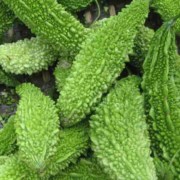Traditional Chinese medicine for diabetes has scientific backing Reports of a traditional Chinese medicine having beneficial effects for people suffering from type 2 diabetes now has some scientific evidence to back up the claims.
A collaboration between Chinese, Korean, and Australian scientists at Sydney’s Garvan Institute, has revealed that the natural plant product berberine could be a valuable new treatment. Berberine is found in the roots and bark of a number of plants used for medicinal purposes including wound healing and treatment of diarrhoea.
It has also been documented in Chinese literature as having a glucose-lowering effect when administered to people with diabetes; yet, until now, its mode of action was unknown.
Garvan scientist Dr Jiming Ye says: “Our studies in animal models of diabetes show that berberine acts in part by activating an enzyme in the muscle and liver that is involved in improving the sensitivity of the tissue to insulin – this, in turn, helps lower blood sugar levels. In addition, it seems berberine can help reduce body weight”. Current medicines for treating type 2 diabetes include metformin and the TZD group of drugs.
However, a large number of patients cannot tolerate metformin and the TZDs can cause undesirable weight gain. Therefore, developing new safe therapies to treat type 2 diabetes is critical.
“Berberine has been used for decades, if not centuries, with few reported side effects. Given the limitations of existing medicines, we are excited to have evidence that berberine may be a helpful new treatment for type 2 diabetes; however, despite its widespread use in traditional medicine practices, it will still have to be evaluated properly following the defined clinical trials process”, said Professor James, head of the Garvan’s Diabetes & Obesity Research Program and co-author of the Diabetes paper.
The next step is to investigate how berberine activates the enzyme that mediates these ‘insulin-sensitising’ effects.
NOTES: This study will be published in the August issue of ‘Diabetes‘.

